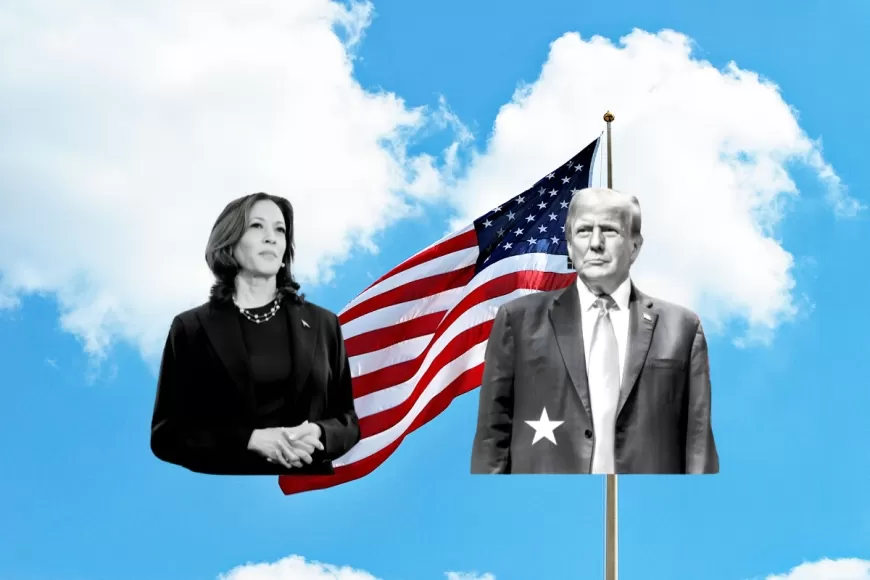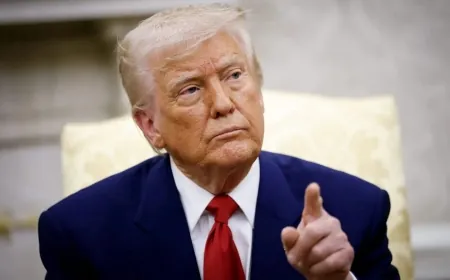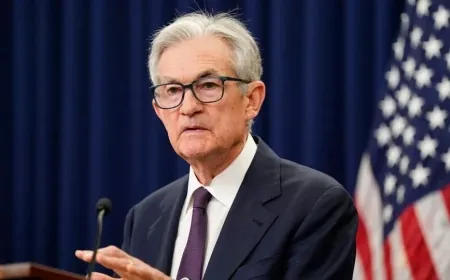Wall Street’s Views on Trump and Harris in the 2024 Election: What’s at Stake for the Economy
Wall Street leaders are torn between Donald Trump and Kamala Harris in the 2024 presidential race. Learn how each candidate's policies could impact the financial world

As the 2024 U.S. presidential election approaches, many top Wall Street executives are unsure about which candidate would be better for the economy. The choice between former President Donald Trump and Vice President Kamala Harris has sparked mixed feelings among financial experts, who are closely watching how each candidate's policies might affect their industry.
Concerns About Trump's Economic Plans
Donald Trump, well-known for supporting Wall Street during his previous time as President, is back with promises of cutting taxes and reducing rules on businesses. While this might sound good to many in the financial world, there's a lot of worry about how his plans could impact the overall economy.
Many executives remember that while Trump pushed for less regulation and lower taxes before, his protectionist trade policies and tariffs (taxes on imports) caused uncertainty. These tariffs, if reintroduced, might lead to higher prices on goods and potentially increase inflation, which could make things more expensive for everyday people and businesses alike.
Bruce Mehlman, a partner at Mehlman Consulting, a firm that works with clients across different industries, noted that many Wall Street leaders are concerned about Trump’s tendency to make decisions that are popular with his base but could create instability. This concern leaves financial experts wondering if another Trump presidency might mean more unpredictable changes.
Harris Seen as Stable but Uncertain
On the other side, Vice President Kamala Harris has recently stepped into the spotlight as the main Democratic candidate, following President Joe Biden's decision to step aside. Many on Wall Street see Harris as a safer and more predictable option, but there's still some uncertainty because she hasn’t shared a clear economic plan yet.
Harris has supported stricter regulations on financial institutions, much like President Biden. Some financial leaders worry she might continue to crack down on Wall Street's more profitable practices. Her previous experience as a prosecutor who was tough on big banks suggests she might favor more rules and oversight, which could impact the way Wall Street operates.
On the other hand, Harris wants to raise taxes on the wealthiest individuals and companies, aiming to reduce the country’s growing deficit. This could mean that businesses might see lower profits, but it might help address some of the financial issues facing the country. Many financial experts are watching to see how Harris will balance the need for regulation with the desire to keep the economy growing.
Wall Street's Preferred Outcome: Harris with a Republican Senate
A lot of financial professionals believe that the best outcome might be if Harris becomes President but has to work with a Republican-controlled Senate. This balance would likely prevent any extreme policies from being implemented and could help ensure that any changes made to financial regulations are fair and sensible.
Where the Money Is Going
Campaign donations often give a hint about which candidate is more popular with big industries. As of August 21, 2023, data from OpenSecrets shows that people connected to the finance and investment sectors have given about $8.7 million to the Biden/Harris campaign, compared to around $3 million to Trump. While this shows some support for Harris, many executives are still carefully considering how each candidate’s policies will impact their businesses.
Worries About Populism and Policy Choices
Another major concern for Wall Street is how each candidate would choose leaders for key financial roles. There’s fear that Trump might appoint people who are loyal to him but lack experience, which could lead to more unpredictable decision-making. On the other hand, some believe that Harris might stick with Biden’s progressive picks for financial agencies, continuing a tougher stance on Wall Street.
Jon Henes, who helped with Harris' campaign finances in 2020, feels confident that Harris will aim for practical rules that make sense. He thinks she’s more likely to work with the financial industry than many might expect, but the lack of specific details has left many on Wall Street waiting for clearer information.
What’s at Stake for Wall Street
The decision between Trump and Harris is crucial for the financial industry. Trump’s promises of cutting taxes and reducing regulations could mean higher profits in the short term but come with the risk of more trade tensions and instability. Harris, while potentially more consistent, might introduce tighter regulations and higher taxes, which could make it harder for some businesses to grow.
Financial experts are eager for more details from both candidates as they consider which policies would be best for the economy. As the election draws closer, Wall Street is keeping a close watch on how Trump and Harris present their plans, hoping for a clearer picture of what lies ahead.































































